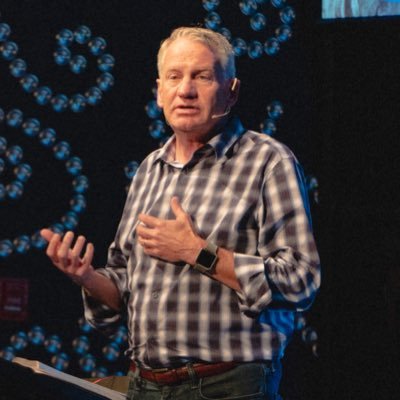
How do we maintain healthy church leadership in turbulent times? Here are seven suggestions for developing a healthy culture.
By Ron Edmondson
According to Lifeway Research’s Greatest Needs of Pastors study, 75% of pastors indicated apathy or a lack of commitment from church members was top of their concerns when it comes to people dynamics in ministry. The other statistics listed in the research were equally disturbing. People’s strong opinions, resistance to change, and divisive political views make leading healthy teams harder today than ever in my career.
Not surprisingly, these challenges are true to my own experience. Sadly, the report was like a window into my soul, as a pastor leading through a pandemic and in today’s culture.
Surely it’s more difficult to maintain a healthy church leadership environment amid the current culture than ever in my more than thirty-five years as a senior leader. How do we maintain the health of our staff and volunteers in such turbulent times? Here are seven suggestions for developing a healthy church leadership culture:
1. Stay true to your vision
I’ve seen too many pastors run from one vision to another during times of stress or chaos. Some apparently feel trying a thousand different things might land them on the one “thing” that turns things or causes new momentum.
Even in difficult times, the vision should remain constant and be the driving force of energy and momentum-building. — @RonEdmondson Click To TweetYet, the vision should remain constant and be the driving force of energy and momentum-building. This is especially clear for faith leaders, since what we’ve been called to do is spelled out for us in Scripture. On the most stressful days, I find it’s important to remind myself and our team why we’re called to this and what purpose the Lord has for us.
2. Shorter-term planning
While we maintain our long-term objectives as a church—which is ultimately to make disciples—we should hold our plans with a looser grip than we’ve held them in the past.
In seasons of fast change and confusion in our culture, it’s difficult to make five or ten-year plans and think we’ll be able to implement them as we have in years past.
I’m leading my teams to plan for the next quarter to six months and review our plans more frequently than we might have done in the past. Flexibility is the name of the game today. Embracing this reality will cut down on frustration when plans have to change suddenly or don’t turn out as we hoped they would.
3. Embrace every role on the team
One thing COVID made abundantly clear to me as a pastor is that there are team members I probably took for granted—until the church couldn’t function well without them. These include:
- Tech people who scrambled to get our services online when we couldn’t meet in person
- Communications people who got out word of rapid change
- Or facilities people who had to go overboard to assure people things were sanitized when we did allow people back into our buildings
If we want to create a healthy church leadership culture, we must never again overlook anyone’s role. Scripture is clear that we’re a body and every part of the body matters. That should be clearer to us today than it was previously.
If we want to create a healthy church leadership culture, we must never again overlook anyone’s role. — @RonEdmondson Click To Tweet4. Build organizations with high levels of trust
Now’s the time to get rid of any organizational fear. In especially strenuous times we must be “all in” together to survive. It’s the leadership’s responsibility to create “safe spaces” for people to be able to speak freely and bring their whole selves to work. Where there’s a high level of trust, there’s a healthy team where everyone flourishes.
5. Learn how to deal with and let go of pain—and lead others to do likewise
Someone said recently that to be a leader today you need to be a psychologist and a sociologist. And certainly, we need to develop our listening skills.
We have to help people learn how to deal with stress. And one way they’ll likely get that will be from watching us as leaders—the way we respond in a meeting when people disagree with us, the way we act toward outsiders or under pressure, and the way we respond to criticism or disappointment.
One hard question for leaders is: What if the temperature of your organization was totally set by you? How comfortable of a place would it be?
Leadership is hard. I admit that. We carry a lot of weight others simply don’t see. One of my favorite quotes to say to our staff is, “You can’t see what I see until you sit where I sit.” This takes discipline for all of us. It isn’t easy to remain calm under pressure or to respond to people (many times who aren’t very kind to us) with grace and forgiveness.
Yet, I have learned that “letting it go” really is a discipline we have to practice if we want to develop a healthy church culture. As I tell my church, we have to learn to worship in pain. And as leaders, we must learn to lead with confidence, patience, and kindness even during the most stressful seasons. As we go, our teams will also go.
6. Help people accept change as a natural part of life
We must help them deal with the reality of change because it isn’t going away anytime soon. We can no longer assume the past will be the future. The sooner we realize this, the less dramatic change will seem when it comes.
We can no longer assume the past will be the future. The sooner we realize this, the less dramatic change will seem when it comes. — @RonEdmondson Click To Tweet7. Protect our souls
This includes our families. We have to take care of ourselves and help people we lead do likewise. COVID has been a great reminder that we have to care for ourselves physically, mentally, and, of course, spiritually. People are frustrated, angry, and confused—in the church and in the workplace. As leaders, we need to be aware of this and sensitive to it. To succeed long-term in leadership—especially today—people must establish healthy rhythms of life. And we should help them do this.
Maintaining healthy church leadership is more difficult than ever before, but perhaps even more vital. If we want to adequately pursue the Great Commission it’s incumbent upon us as leaders to strive toward organizational health and wellness.

Ron Edmondson
Ron is senior pastor of Immanuel Baptist Church in Lexington, Kentucky. He is an author, pastor, host of the Ron Edmondson Leadership podcast, and the former CEO of Leadership Network.







